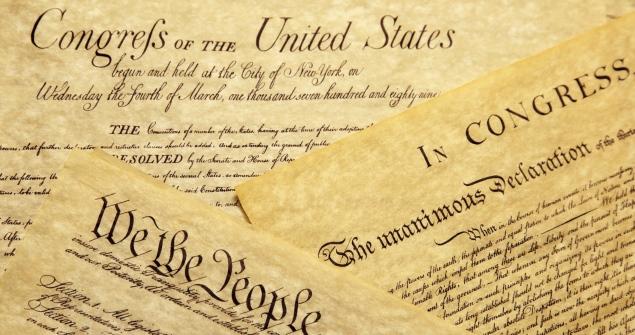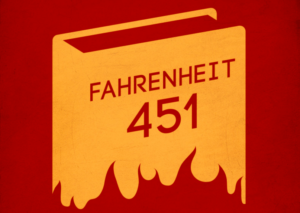The Internet is full these days of videos of college students at question-and-answer sessions engaging conservative guest speakers, who have the advantage of actually being adults, demanding the speakers answer questions about (or rather, answer for) privilege, or patriarchy, or whatever else is singularly to blame this week for all the world’s ills.
One such video was published a few days ago that caught my eye, called “Student advocates banning hurtful speech, gets schooled.” It’s a deceptive title, as so many on the Internet are, designed more to attract clicks than to accurately describe the video’s content. The video actually involves several students asking questions, not just one, each followed by uninspired responses, none of which could reasonably be called a “schooling.” The whole thing is rather dull.
But the video did open with an unusually thoughtful question, longwinded though it was, from a student who basically said “look, free speech is one thing, but there are people who are deliberately hurtful, like Milo Yiannopoulos. Why should students be subjected to that? Free speech does not cover that sort of thing.”
Here’s what I would’ve said: You’re right that free speech is not absolutely good. But it is absolutely better than the alternative.
You are right that speech is a very powerful thing that can be misused to hurt people. It is perhaps the most dangerous force available to humans. Just as electricity can be used for good to light a room or for evil to cause death, speech can be used to advance knowledge and bring people together, or cause grievous harm and drive us apart. It destroys families, traumatizes innocents, and scars many for life. It has started wars, collapsed markets, conquered nations, and killed millions.
So, at first glance, it is not unreasonable to take the position that colleges should protect students from hurtful speech, just as they have an obligation to protect students from physical abuse by other members of the school community.
But who should determine what is “hurtful”? It’s very easy for college students to declare as “hurtful” any speech that contradicts their fragile worldviews and sensibilities. But by making “hurtfulness” an automatic bar to speech, any speech can be barred just by being labeled “hurtful,” including your own.
This is one of the many contradictions on which the Left often stumbles: they ostensibly oppose hate speech, but they are capable of no other kind. They spew hatred for America, hatred for capitalists, hatred for Wall Street, hatred for big business, hatred for the rich, and religion, and it goes without saying, a certain President of the United States and his reprehensible voters. Should those statements be prohibited as “hurtful”? We can debate the merits of those positions, but only because we have decided not to prohibit their articulation.
The Left doesn’t seem to understand this. They are very quick to lurch toward authoritarianism when they are in charge, forgetting that they are not always. Their demand for speech codes would change very quickly if, for example, Congress decided that the teaching of socialism in colleges and universities is ultimately very hurtful — considering its obsession with divisive class envy, and that it caused the deaths of 100 million people during the 20th century — and thus removed funding from all colleges and universities that encourage socialism, or teach that America is evil, or criticized war efforts, or any number of other things that those in power found inconvenient. I bet these kids would start singing the virtues of free speech pretty quickly.
And they would be right to, because free speech is essential to pursuing truth, and that is the entire purpose of a university. It should be considered an inalienable right. When we talk about the values of the Enlightenment, and the establishment of certain rights that separate today from the Dark Ages, we speak often of the right to life, liberty, and the pursuit (not guarantee) of happiness. But I would suggest a fourth, implicit in and essential to the first three, and that is the right to pursue the truth, and implicit in that is the right to articulate and listen to ideas, however revolting they may be.
Indeed, the truth is often very hurtful. In fact, it is usually more hurtful than lies and slanders because it cannot be so easily dismissed. We know this instinctively. We have all told white lies to protect people we care about from potentially hurtful truths.
So what should we do with hurtful truths? Or, since truth is rarely knowable in absolute terms, hurtful statements that claim truth? Should the truthfulness trump the hurtfulness, or the other way around? Should it be subjected to a balancing test? Who should do the balancing? And who should determine the extent to which a statement is true, and the extent to which it’s hurtful?
There is no answer to that question that does not lead to authoritarianism, and with it repression of the very rights that make life worth living, and that advance the world to a better tomorrow. Free speech can hurt, and not all of it deserves to be praised. Deal with it. Part of living in a free and pluralistic society that values advancement is understanding that not everybody is going to be like you, not everybody is going to agree with you, and some people are mean just for the sake of being mean. But whatever discomfort that causes you is still far better than the alternative, which is for nobody to say anything of consequence.
So the answer is not to shield yourself, but to steel yourself. Join the conversation, learn something from people you don’t agree with, avoid people who are gratuitously mean to the extent you can, ignore them to the extent you cannot, and accept as reality that sometimes people are wrong, sometimes they’re hurtful, sometimes they’re jerks, and sometimes you are too.




